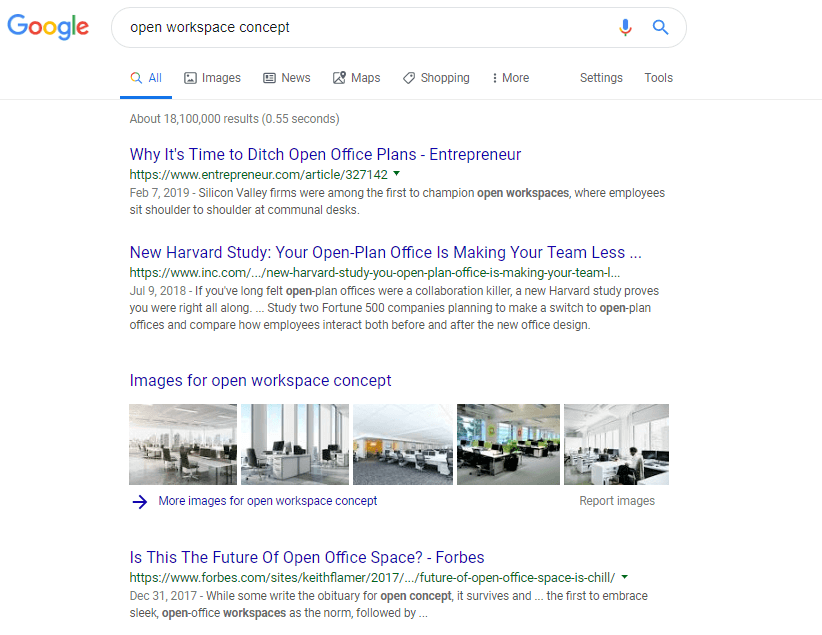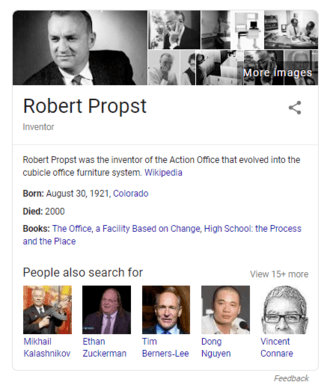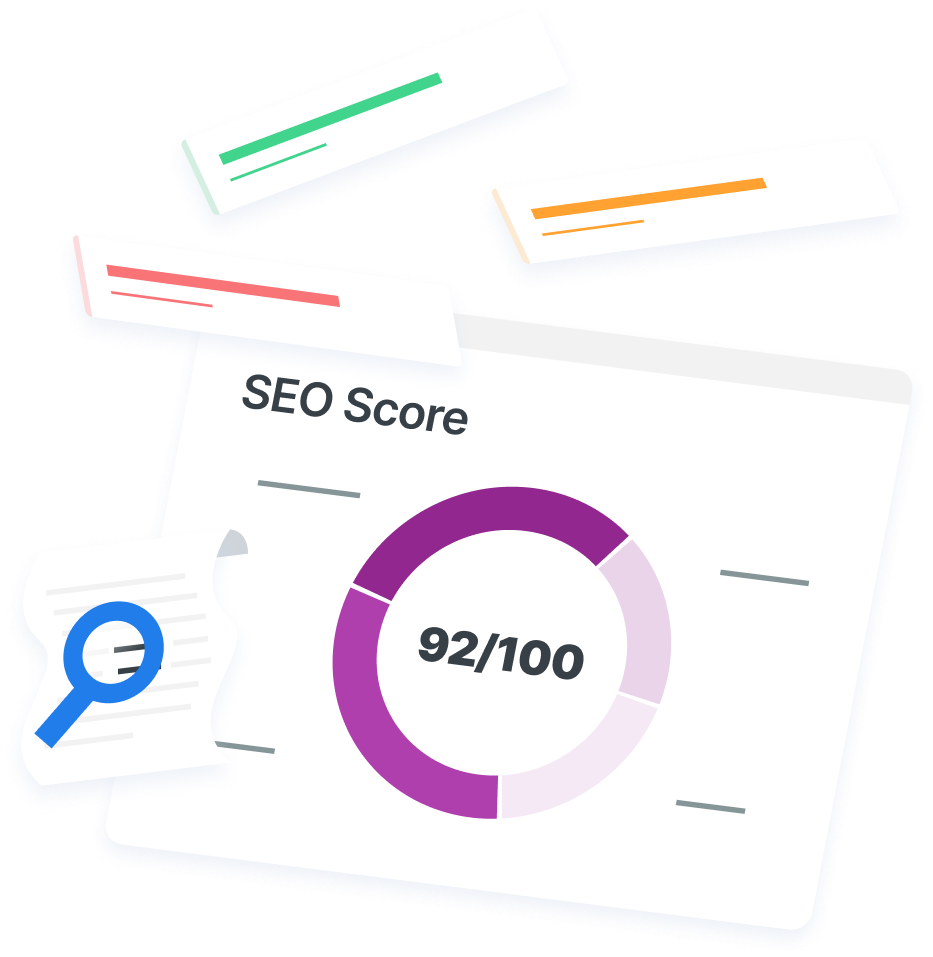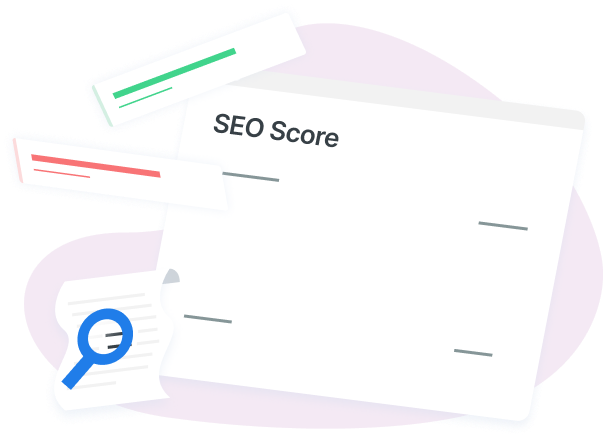-
 8 min. read
8 min. read
-
 Trevin Shirey
Trevin Shirey VP of Marketing
VP of Marketing
- Trevin serves as the VP of Marketing at WebFX. He has worked on over 450 marketing campaigns and has been building websites for over 25 years. His work has been featured by Search Engine Land, USA Today, Fast Company and Inc.
Internet marketing jargon tosses around a lot of acronyms, and you’ve probably noticed the term “SERP” referenced. But you may be wondering, “What is SERP and why does it matter?” A search engine results page (SERP) is a page generated by a search engine in response to a user search or query. SERPs display a list of results or sites relevant to the user’s search.
Paid advertisements, if relevant, may also appear in a SERP.
If you’re ready to learn more about SERPs and their importance to search engine optimization (SEO), check out the video and the rest of the SERP 101 overview post below!
Do you need an SEO agency to assist you in the complex digital marketing landscape? WebFX is ready and equipped to tackle your marketing campaigns. Contact us online or call us at 888-601-5359 today!
What is SERP: Search engine results page definition
What did you Google last?
Do you remember scrolling through results? The pages holding all the clickable options for new information are search engine results pages or SERPs.

Here’s a quick definition of SERP. SERP’s meaning is search engine results page, and it’s the kind of page that lists results after you plug a query into the search bar of Google or other search engines.
Search engines deliver a ranked list of URLs that relate to the distinct keywords entered.

How do search engines generate SERPs?
After we define SERPs, let’s now understand how they actually work. For each keyword phrase, suitable website pages containing the keywords are ranked from most appropriate to the least using the search engine’s unique ranking factors. Google, for example, features more than 200 ranking factors for its algorithm.
The first SERP typically gets all the attention and clicks from users, but search engines can have multiple pages full of results.  Whether you favor Google, Bing, or the tree-friendly Ecosia search engine, the label “SERPs” applies, and you want your company website to reside in a top position for popular keywords to attract leads and customers.
Whether you favor Google, Bing, or the tree-friendly Ecosia search engine, the label “SERPs” applies, and you want your company website to reside in a top position for popular keywords to attract leads and customers.
Types of results in SERPs
SERPs have two main categories of results, organic and paid, although organic search results make up the bulk of the listings. Let’s go over the differences so you can choose an effective approach.
Organic results in SERPs
Organic results are the page listings that naturally match the quality, relevance, and authority factors of a search engine’s algorithms.
The ranking algorithms assess online content with a range of standards — for example, Google has over 200 ranking factors. While the format frequently shifts on Google, organic text-based results typically hold around ten slots on page one. The goal for SEO is to obtain a prominent spot on the first SERP and avoid getting hidden on the second or third pages where few users reach.

Since the organic results correspond to the complex system of Google, they require thorough efforts to satisfy users.
Carefully appealing to the search intent behind queries generates better rankings. The search intent — the reason someone searched for particular keywords — generally falls into three groups:
- Transaction based: The user is thinking of or ready to purchase (i.e. “zebra-print wallet for sale”).
- Information geared: The user is seeking to learn about a topic (i.e. “zebra species”).
- Navigation centered: The user wants to reach a predetermined destination or piece of information (i.e. “zebra sanctuary phone number”).
Google emphasizes user experience and creating quality content, so accurate intent-geared pages tend to perform well in the organic portion of SERPs.
Paid results in SERPs
Paid search results on SERPs usually surround organic results at the top, side, and bottom. They can follow the same setup as organic text-based ads with a few distinctions, like the subtle green “Ad” box on Google.  As you can tell by the name, these results cost a fee to display on search engines.
As you can tell by the name, these results cost a fee to display on search engines.
They fall into the routine categories of Internet ad structures of cost-per-mille (CPM), which means you pay for a thousand impressions, or pay-per-click (PPC), which means you pay when someone clicks on your ad. Image-based paid ads can also be positioned around SERPs, especially for listing products and shopping options.
What are SERP features?
Our SERP definition wouldn’t be complete without an overview of SERP features. In the SERPs, there are interesting features that make certain results pop.
As Google and other search engines have developed, they’ve added helpful boxes, visuals, and interactive panels. Anything outside of the norm on search engine results pages is probably a SERP feature. Including paid ads, the SERP features enrich user experience throughout the search journey.
Here are some examples of Google SERP features that you can use to your advantage for SEO:
Rich snippets
Rich snippets act as accessories to existing text-based results. Using Schema markup, rich snippets could be review stars, recipes, and breadcrumb lists.
Universal results
Universal results have extra media like images and maps that show up around text-based results. Featured snippets belong to this category of SERP features, and they’re an important element with a considerable plot of SEO land.
Knowledge graph
This is a system that connects pieces of information and usually appears in a card or panel format.

Google Ads
Google Ads can occupy up to four spaces above the organic results.
Through an auction framework, your ads differ in placement with other keyword-targeted ads based on your maximum bid amount, ad relevance, and click-through rates.
Google Shopping
The shopping area in SERPs includes pricing, product names, store names, and pictures. It’s a form of paid advertising that lines the top of Google SERPs and targets transactional queries.
Looking for an all-in-one SEO audit tool? You’ve found it.
SEO Checker provides data on key metrics to give you:
- Complete SEO score
- Content Grade
- Site Speed Analysis
- and more.

Why do SERPs matter for SEO?
“Location is everything” in the business world, and that truth extends to SEO, too. The SERP is the property you need to dominate to generate revenue and earn visibility.
SERPs are the arena where your SEO strategy dukes it out against other websites. It’s where you make initial contact with users and draw prospective customers to your pages. It’s where you need to hone your craft of search engine optimization.
1. Increase click-through rate with titles and meta descriptions
The anatomy of SERP results is significant for SEO. When you operate on each portion, the chance of users clicking on your result over countless others improves. So, what parts exist in the average text-based result?
Text-based results have a title and meta description that users examine as they scroll down the SERP. If the contents are inviting and helpful, users pick the result.  Constructing engaging titles with a central keyword is vital to secure success on the search engine results page.
Constructing engaging titles with a central keyword is vital to secure success on the search engine results page.
Original, descriptive result details enhance your ranking and produce an influx of traffic.
2. Raise brand awareness with identifiable URLs
While your URL isn’t a major part of SEO, it can strengthen your brand if you choose clear, readable patterns. For example, computer-generated URLs with strings of numbers and unintelligible characters don’t distinguish companies well. Rather than sticking with “https://cubicleworld.net/folder8992/page177,” you can opt for a simple, informative URL like “https://cubicleworld.net/blog/best-office-setting.” Both domain names and page URLs with recognizable text can set your page apart for users and boost your SEO campaign.
3. Gain local business with Google My Business
Sprouting off from navigational search intent, local searches have the potential to gather foot traffic and promote physical businesses.
For local SEO, registering for Google Business Profile can help people locate your address, phone number, and business details when searching online. Google Business Profile listings offer a convenient resource within SERPs, and establishing your presence in SERPs can spark a surge in brand awareness and sales.
93% of WebFX customers are extremely satisfied with their digital marketing results.
“Working with WebFX, everything is very organized and strategic. We’re only a year into our partnership, and our expectations have definitely been met.”
View More Client Testimonials

Rank at the top of Google SERPs with WebFX
It’s crucial to grasp what the SERP is and why it affects your SEO efforts — and hopefully, this post answered the question, “What is SERP?” With a solid understanding, you can traverse SERPs and build a productive strategy for your company. Choose a sophisticated SEO agency to truly upgrade your marketing plans.
WebFX is a leading SEO company that’s passionate about driving results. In the last five years, we’ve generated $6 billion in client revenue and 24 million leads for our clients! Would you like to speak with an expert about our robust SEO services?
We’re looking forward to the conversation — just contact us online or call us at 888-601-5359 today.
-
 Trevin serves as the VP of Marketing at WebFX. He has worked on over 450 marketing campaigns and has been building websites for over 25 years. His work has been featured by Search Engine Land, USA Today, Fast Company and Inc.
Trevin serves as the VP of Marketing at WebFX. He has worked on over 450 marketing campaigns and has been building websites for over 25 years. His work has been featured by Search Engine Land, USA Today, Fast Company and Inc. -

WebFX is a full-service marketing agency with 1,100+ client reviews and a 4.9-star rating on Clutch! Find out how our expert team and revenue-accelerating tech can drive results for you! Learn more
Try our free SEO Checker
Boost your site’s search performance with our free SEO Checker. Analyze your website for optimization tips on titles, headers, content, speed, and more. Get a free report now to enhance rankings on Google, Bing, Yahoo, and beyond!



How Is Your Website’s SEO?
Use our free tool to get your score calculated in under 60 seconds.
Try our free SEO Checker
Boost your site’s search performance with our free SEO Checker. Analyze your website for optimization tips on titles, headers, content, speed, and more. Get a free report now to enhance rankings on Google, Bing, Yahoo, and beyond!






